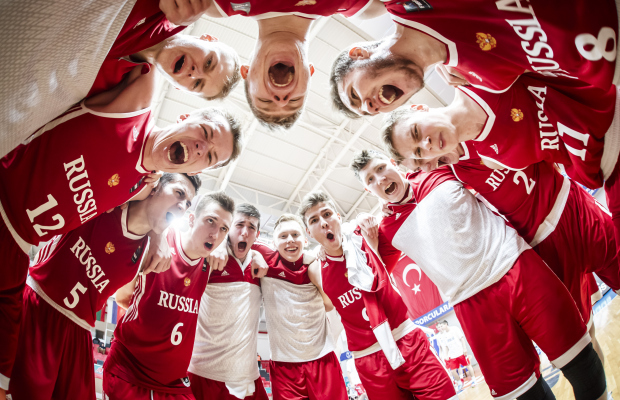Many issues arise because parents are unsure as to how they can best assist their children. Parents may often choose the less opportune decision over the more appropriate one. Parents are primarily responsible for the overall evolution of the athlete as a person. At an early stage, parents should promote the notion of a healthy balance between sport and personal development. They should act as a regulator for young athletes, who could be still too young to have a clear and long-term vision of their career.
Parents who care about the sport future of their children should be educated in how important it is to build positive relationships from early childhood. Once it is clear that your child can become a professional basketball player (e.g. competing at international level), your role might change a bit:
- Interaction with the athlete
- Ensure the player respects the principles of good sportsmanship, behaviour and ethics. They should stay grounded, and parents should avoid expressions such as: "the referee was terrible".
- No matter what stage the player is at, you should always try to manage them so that they live within their means and follow a monthly budget.
- Understand that professional players may have to grow-up faster than other people of their age. However, they will still need your psychological and physical support.
- The more professional they become, the more people will be needed to help them. While you must be his/her main support at a younger age, you must understand that, at some point, the player will need an agent, a financial advisor, a sport psychologist, etc. to grow his/her career. Step aside and understand that this is for the player’s best interest.
- School and education
- If possible, give preference to sports-friendly schools and institutions.
- Speak to other parents to see how they have managed to find time for distance-learning education courses or short-term training courses for their child.
- As a general rule, try to drive your child towards a dual-career. However, the final decision should come from them.
- Talk to your National Federation or Players' Mentor to learn about all the possibilities.
- Interaction with the coaches
- As parents, you must acknowledge that a coach's expertise and knowledge makes them an authority figure within the sport and that they must be treated as such.
- Depending on the level and age, you might want to have a good relationship with coaches and have a fluid and friendly communication with them.
- Understand that the coach will gain a lot of influence on your child’s life. Try to work with him/her, instead of against him/her.
- Interactions with Agents
- Take your time, together with your child, to choose an agent. It is a key decision that will affect the athlete's career.
- Make sure you find out important information, such as whether or not he or she is well respected in the world of sport. Ask for recommendations from people around you.
- Make sure the agent will have no conflict of interests in taking decisions. Is he/she totally independent from clubs or other associations, for instance?
- Check the section agents from this guide and contact your National Federation or FIBA should you have any questions.
